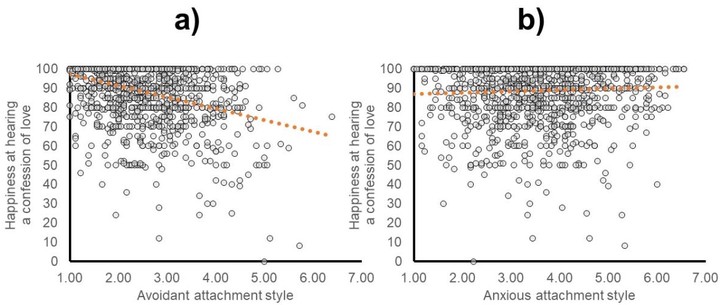Men say "I love you" before women do: Robust across several countries

Resumen
Feeling and expressing love is at the core of romantic relationships, but individuals differ in their proclivity to worry about their relationships and/or avoid intimacy. Saying ‘I love you’ signals a commitment to a future with our romantic partner. Contrary to gender stereotypes, research in the US demonstrates that men are more likely to confess love first. We aimed to replicate this sex difference in an online cross-national sample (seven countries, three continents), while testing for variation according to attachment style and environment (the national sex ratio). Men were more likely to confess love first in a relationship, with preliminary evidence that this was more likely when men had more choice (more female biased sex ratio). Independent of biological sex, highly avoidant respondents were less happy to hear ‘I love you’ than less avoidant respondents, and highly anxious respondents were happier to hear ‘I love you’ than less anxious respondents. Our findings suggest that prior observations generalize beyond an ethnically homogenous sample, and incorporate attachment theory into the study of love confessions. Our research suggests a dissociation between initial declarations of love (moderated by biological sex) and emotional responses to love confessions, moderated by attachment style but not by biological sex. Key words: Close relationships, Sex differences, Speech acts, Sex ratio, Attachment, Affectionate communication, Error Management Theory.